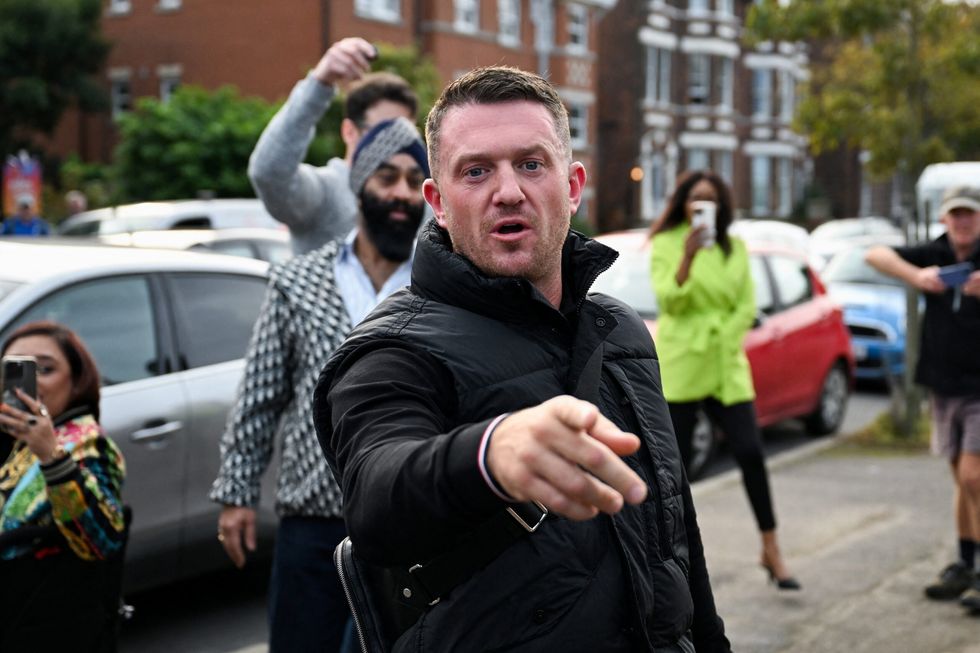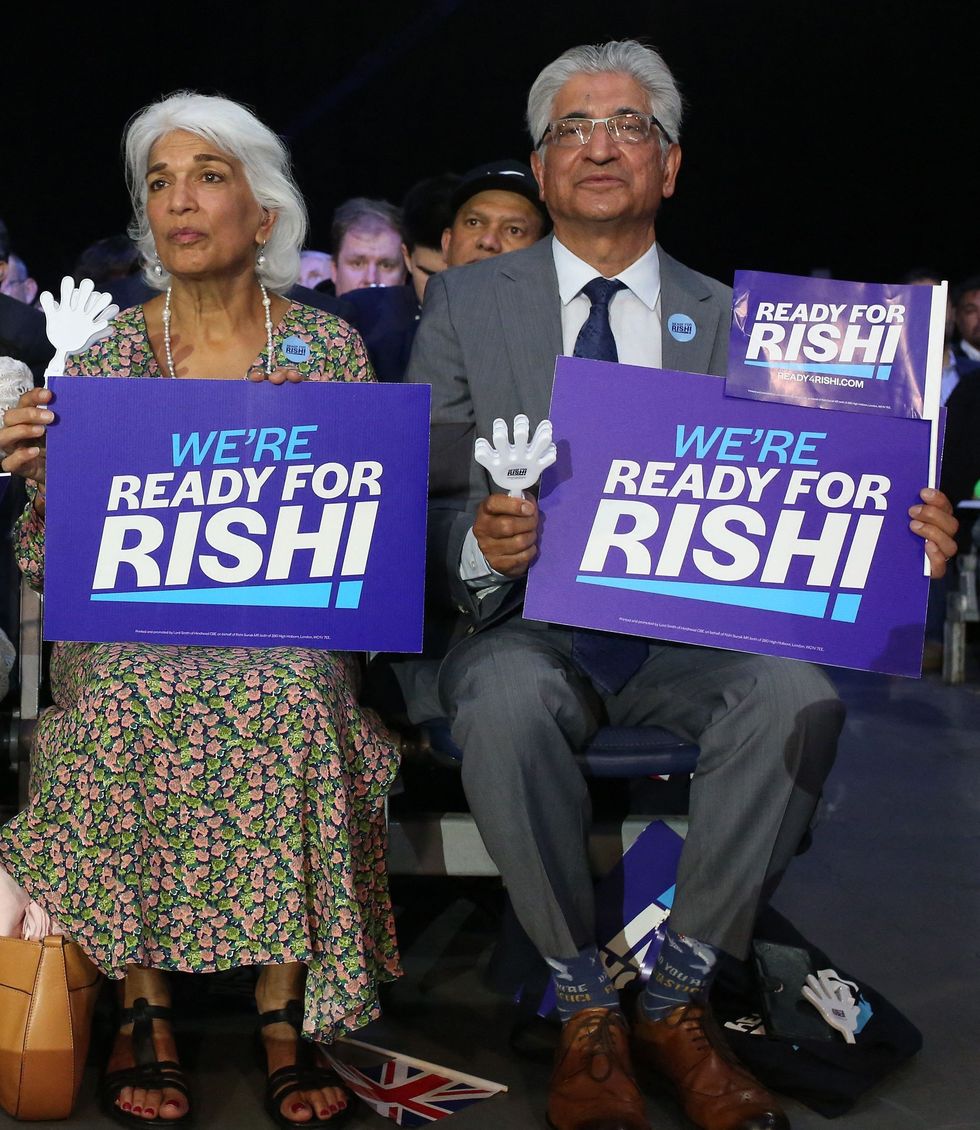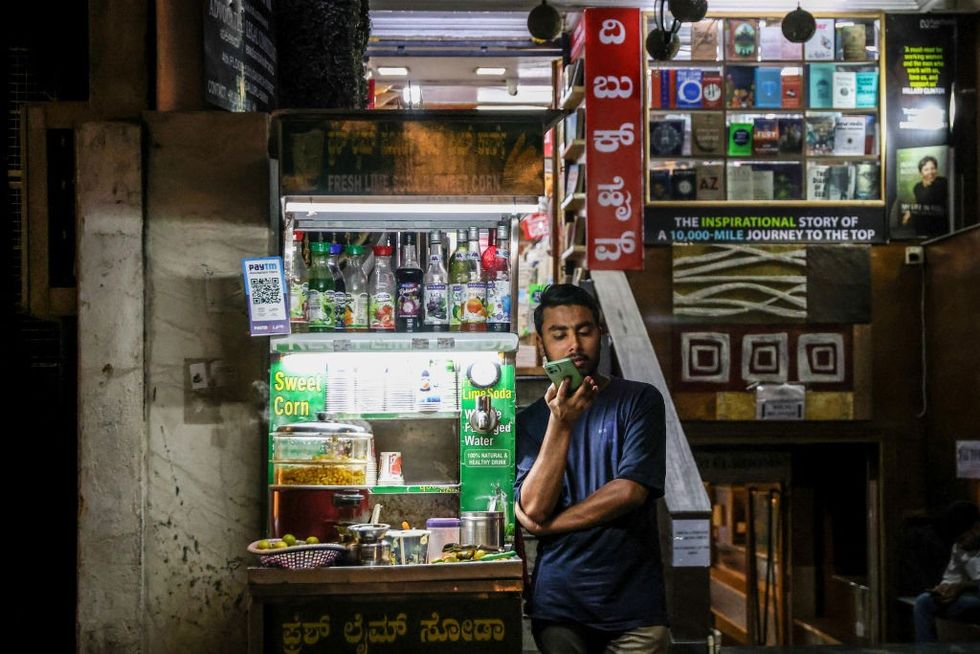SRI LANKA’S new leftist leader drew strong support from an unlikely source as he sought to expand his three parliamentary seats to a house majority in elections on Thursday (14).
President Anura Kumara Dissanayake, who counts Karl Marx and Che Guevara among his heroes, has the backing of the country’s largest and private sector trade and industry body.
Dissanayake took power in September on the back of public anger over the island’s 2022 economic meltdown – and the Ceylon Chamber of Commerce (CCC) has said its proposals for economic recovery match the socialist agenda of his People’s Liberation Front (JVP).
The 55-year-old leader is seeking a two-thirds majority in the 225-member legislature to consolidate his executive power and press ahead with reforms. His party held just three seats in the outgoing assembly, which was elected in August 2020 for a five-year term, that he cut short by nearly 10 months.
Dissanayake has been an MP for nearly 25 years and was briefly an agriculture minister, but he distanced himself from traditional politicians accused of leading the country to its worst meltdown in 2022.
“He came to power on a promise to fight corruption and the main theme of the parliamentary election campaign is also the same,” political analyst Kusal Perera said.
Leader of oppositionSajith PremadasaBusiness leaders have speculated the country could follow the economic models of China or Vietnam under Dissanayake, whose party sports the hammer and sickle motif of the international communist movement in its logo.
“In the first term (of Dissanayake), I would say that they will be far better than Vietnam in terms of having a full democratic setup”, said Imran Furkan, from the Australia-based geopolitical risk analysis firm Tresync.
“Democracy is deeply rooted in Sri Lanka, unlike in Vietnam, which has been communist for a long time”.
Furkan said he expected Dissanayake’s party to comfortably win Thursday’s parliamentary elections and then pursue reforms, including unpopular austerity measures begun by his predecessor, Ranil Wickremesinghe, in line with a $2.9 billion (£2.2bn) IMF bailout.
The JVP, which led armed insurrections in 1971 and 1987 that left some 80,000 people dead, has since joined mainstream politics, in a coalition with professional groups calling themselves the National People’s Power (NPP). Dissanayake, by allowing the debt deal agreed by Wickremesinghe to move forward, has won the confidence of both local and foreign investors that he will not reverse the reforms, Furkan said.
Since Dissanayake’s victory, the All Share Price Index at the Colombo Stock Exchange has gained 16.65 per cent, underscoring positive investor sentiment. He has also maintained close ties with India and the country’s largest bilateral lender, China.
Both neighbours compete for influence in the small but strategically located Indian Ocean island, a majority-Buddhist nation of about 22 million people. Voting was scheduled to open on Thursday at 7 am (0130 GMT) for 8,880 candidates contesting 225 seats in parliament, with initial results expected as early as Friday (15) morning (Eastern Eye went to press on Tuesday).
But election monitors said there was little enthusiasm among voters.
Private monitoring group the People’s Action for Free and Fair Elections (PAFFREL) said voter turnout could be lower than the 80 per cent seen in the presidential poll.
PAFFREL head Rohana Hettiarachchie said the results were seen as a foregone conclusion given how few opposition party candidates were active.
Dissanayake’s party had only three seats in the outgoing legislature, but faces little challenge this time. “Campaigning from the opposition side is very low,” he said, while noting that campaigns, unlike in the past, had at least been peaceful.
CCC chief Duminda Hulangamuwa is not only backing the new administration’s plans, but has also accepted an honorary position as Dissanayake’s economic adviser.
Hulangamuwa told reporters last week that Dissanayake wanted to push ahead with the IMF bailout, which requires reforms to loss-making state-owned enterprises as well as the elimination of subsidies and tax holidays.
Dissanayake’s policy is to implement reforms and then bring about macro stability, Hulangamuwa said, adding the president wanted “growth in a more inclusive manner.”
Namal RajapaksaFormer president Wickremesinghe was voted out of office after doubling income taxes and imposing other reviled austerity measures. His policies ended the shortages of essentials such as food, fuel and medicines, along with runaway inflation, and returned the country to growth, but left millions struggling to make ends meet. The IMF said Wickremesinghe’s administration made significant progress in repairing the nation’s ruined finances after a $46 billion foreign debt default in 2022.
The IMF was due to send another mission to Colombo on the day of the polls to review progress, after declaring that Sri Lanka was “not out of the woods yet”.
Hotel sector executive Anura Lokuhetty said a stable government was needed.
“Now that we have a president from the NPP, the parliament should support the system to carry on a good environment for business,” Lokuhetty told AFP.
Lawyer Shanthini Walgama said Dissanayake’s coalition offered the best promise of tackling endemic corruption and bringing lasting change.
“In this election, it is all about progress over stagnation, unity over division, honesty over corruption,” she told AFP.
The outgoing parliament was dominated by the party of former president Mahinda Rajapaksa – the Sri Lanka Podujana Peramuna (SLPP), or the People’s Front – but it has since splintered.
Rajapaksa is not contesting, but his son Namal, a former sports minister, is seeking re-election.
More than 60 senior politicians from the previous administration have opted to stay out.






 The US base at Diego Garcia
The US base at Diego Garcia











 Anti-immigration activist Stephen Yaxley-Lennon, known as Tommy Robinson, gestures before arriving at Folkestone Police Station in Folkestone, Britain, October 25, 2024. REUTERS/Chris J Ratcliffe
Anti-immigration activist Stephen Yaxley-Lennon, known as Tommy Robinson, gestures before arriving at Folkestone Police Station in Folkestone, Britain, October 25, 2024. REUTERS/Chris J Ratcliffe
 Sudha Murty and her husband Narayana Murthy with their daughter Akshata, son Rohan and her sister Dr Sunanda Kulkarni
Sudha Murty and her husband Narayana Murthy with their daughter Akshata, son Rohan and her sister Dr Sunanda Kulkarni Rishi Sunak’s parents Usha and Yashvir Sunak
Rishi Sunak’s parents Usha and Yashvir Sunak
 A street vendor looks at his smartphone on April 27, 2024 in Bengaluru, India. (Photo by Valeria Mongelli/Getty Images)
A street vendor looks at his smartphone on April 27, 2024 in Bengaluru, India. (Photo by Valeria Mongelli/Getty Images)